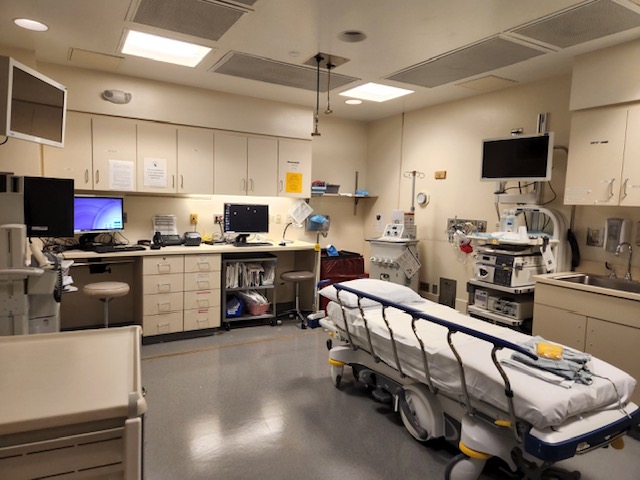If you are older than 45, it is recommended that you have a colon cancer screening, to detect polyps and early cancers that can be treated before symptoms develop. If you have certain risk factors, you will need to start screening earlier or have screening tests more often. Regular screenings may decrease deaths and prevent suffering caused by colorectal cancer. This type of screening is as effective as breast cancer screening in saving lives.

Book your colonoscopy.Getting screened for colorectal cancer can prevent cancers from developing by finding and removing colon polyps before they become serious - usually at the same visit.
Getting a colonoscopy has never been easier to schedule - just point your phone at the QR code to get started, or click here to get an appointment... Make time for your screening.The life you may save is your own. |  |
The CDC and American College of Gastroenterology recommendations:
Beginning at age 50, both men and women should follow one of these five screening options:
- Yearly Fecal Occult Blood Test (FOBT) - the multiple-sample type (take-home);
if positive results, a colonoscopy is needed
- Flexible sigmoidoscopy every 5 years
- Yearly fecal occult blood test plus sigmoidoscopy every 5 years.
This combination is preferred over either of these two tests alone.
- Double-contrast barium enema every 5 years
- Colonoscopy every 10 years
There are three ways to screen for colon cancer. The first is a stool test (to check for blood). Most medical authorities recommend this be done every 1 to 2 years.
The second method is a sigmoidoscopy exam (a test that uses a flexible small scope to look at the lower part of your colon), recommended every 5 years. Most health care providers recommend that the stool test and the sigmoidoscopy be used together.
The third method is a colonoscopy exam. A colonoscopy is similar to a sigmoidoscopy, but it allows the entire colon to be viewed. The patient usually is mildly sedated during a colonoscopy.






